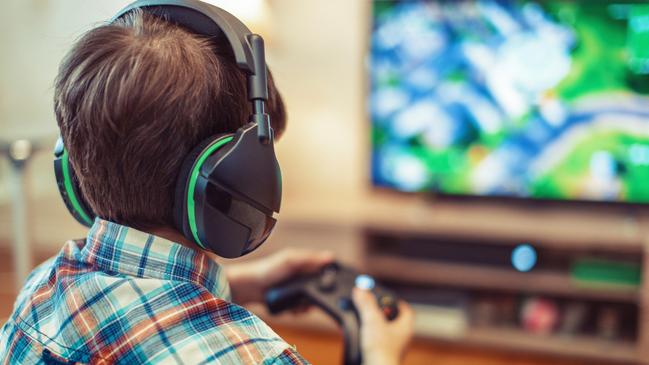Kids need to learn virtues of character
How much pathologising is a manifestation of real mental and emotional turmoil in children – or their parents?

Anxiety is just, well, being anxious. To many of us, still brushing off the coal dust from bringing up our own children, and now observing our grandchildren, this news seems to fall into the “bleeding obvious” category. But what is not obvious is why the pathologising of any “negative” emotion in a child or adult is so prevalent. An extreme example is depression, which has gone from “I’m depressed today”, to “I have depression”, and this phenomenon is affecting children, adolescents and young adults too in great numbers.
So why is this happening when children have more attention and care lavished on them than ever before? How much pathologising is a manifestation of real mental and emotional turmoil in children – or their parents? More simply, is little Johnny really suffering from ADHD, or sleep deprivation from staying up till 2am to play video games? However, most important is whether, by encouraging this pathologising and the behaviours that accompany it, we are setting children up for a terrible adult fall.
The reasons for these problems are many, but we should think about the changes in the society in which we live, and in the structure of the family. We have smaller families than ever before; parents are older and less experienced with children. Many children are not living with both parents. The divorce rate has plateaued but the out-of-wedlock birthrate in Australia is now over 40 per cent.
Add to that, children are now very institutionalised. Many have been in childcare since infancy, they have to do formal “learning” from an early age, and parents are increasingly relying on the institutions, rather than their own instincts, to sort out ordinary problems. One teacher I know has told me she is heartily sick of parents wanting advice on problems outside the education of the children, behavioural problems in the parental realm, not the teacher’s, and ingrained poor behaviour is almost the norm in Australian classrooms. Consequently, teachers and parents are only too happy to medicalise problems. It switches the onus from parents to the “condition”. Hence half the kids in any classroom, especially the boys, are on Ritalin.
Leonard Sax is a famous American physician and psychologist, and author of several books about children, including Why Gender Matters and his 2016 The Collapse of Parenting, reissued last year. His theme is the transfer of authority from parents to children. Every civilisation has been based on parental authority, and the most reliable predictor of good adult outcomes is developing self-control in childhood. The paradox now is that parents think they are doing the right thing by transferring their authority to the child. This is because the family and the authority of parents are being subsumed into a toxic culture, “the culture of disrespect”. This means something much bigger than kids not respecting adults.
Sax gives startling examples from experience as a doctor, from food used as a controlling weapon, especially by adolescent girls, to a six-year-old with a sore throat who wouldn’t open her mouth but stated, borrowing from the pro-choice mantra, “my body, my choice”. It would have been funny, except she was defended by her mother. Sax is right when he says parents now think it is virtuous to let kids decide for themselves. I have seen this myself from extreme examples like the preverbal two-year-old who had to nod yes or no to new shoes, to a prepubescent teen who simply decided he was too unwell to go on the school camp. Children do not need constant “validation”. This myth is one factor that has resulted in “status uncertainty” – parents who are no longer confident about asserting authority.
So, what is the line between being authoritative and authoritarian? Perhaps to even ask the question, as CS Lewis said, means we are worrying about the danger to which we are least prone. We live in a permissive age so we are worried about a whole lot of authoritarian stuff. No one hits their children now. That is not the danger now. The danger is going to the other extreme. Why? Because the whole cultural movement is going in that permissive direction.
Sax points to research done at UCLA quantifying the most popular TV shows watched by children and adolescents from 1957 to early this century, and the subtle change in messages shift from do the right thing, be a good friend, family togetherness and so on, to the win-at-all-costs message of Survivor and American Idol. Meanwhile, social media came in and the most important thing is many likes and, ultimately, fame. Fame became a value of itself, and a cult. So, like Justin Bieber, the young think “the world will belong to me”.
But it won’t. And here is the source of real mental illness in young adults – “the Great Disappointment”. The culture builds into the notions “you can be anything you want to be”, “work hard and your dreams will come true”. This stuff is written on walls in schools now. It is especially the mantra for girls. “You too can be the next whoever.” As Sax says: “Christianity understands the Great Disappointment. Modern culture does not. The result in many young adults is bottomless depression, suicide and self-harm.” The best predictor of happiness is the quality of your personal relationships and that comes from character. We need to teach the real virtues of character, including self-control, to children if we want them to be healthy, wealthy and, most importantly, happy adults.






The other day I opened the newspaper and on the front page was a story that might have come as a revelation to some people: the news that anxiety in children is not necessarily a pathological problem. Who would have thought it?